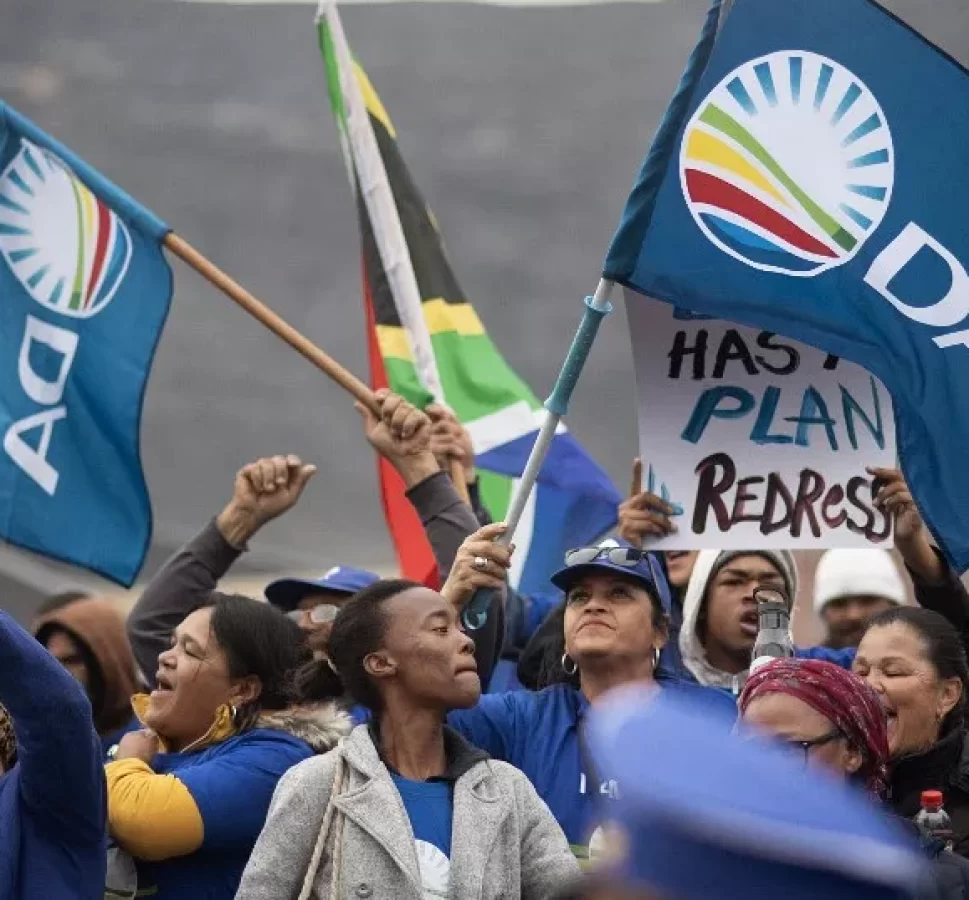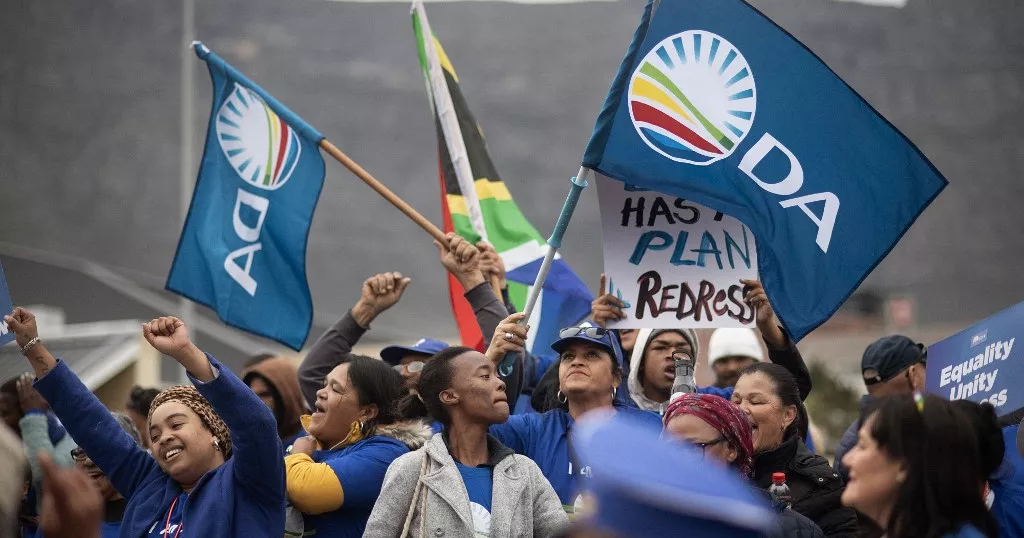
Despite the ANC facing possible voter decline in the May 29 election, analysts say the opposition is splintered and disorganised.
Johannesburg, South Africa – For the first time in 30 years, South Africa’s governing party faces an electoral crisis with expectations that its support will dramatically reduce and it may lose its parliamentary majority in this month’s election.
But even as the African National Congress (ANC) – which has been in power since the end of apartheid in 1994 – struggles to attract voters, it has one key advantage that could help it stay in power, analysts say.
A splintered, disorganised opposition.
With 70 political parties and 11 independent candidates contesting the May 29 national and provincial elections, the opposition is fragmented, according to Mcebisi Ndletyana, professor of political science at the University of Johannesburg.
He said both the ANC and the official opposition are at the risk of declining support.
The ANC received 57 percent of the vote in the last general elections held in 2019 but its support is expected to plummet given rising unemployment, a persisting power crisis and allegations of growing misgovernance.
According to a recent opinion poll by market research firm Ipsos, the ANC’s support now sits at 40.2 percent.
A series of opinion polls have also predicted that the ruling party may lose the majority needed to form a national government.
However, despite an expected decline in the ANC’s performance, analysts have also pointed at possible stagnation in support for its main rivals.
The same poll done by Ipsos shows marginal growth for three of the country’s top opposition parties – the Democratic Alliance (DA), Economic Freedom Fighters (EFF) and Inkatha Freedom Party (IFP).
The ANC has fashioned itself as a centre-left party while the DA is right-leaning. The EFF is a left-wing party that promotes for wholesale nationalisation of land. On the other hand, the IFP has risen on the back of Zulu nationalism and leans to the right.
The Ipsos poll estimated that the DA, which is the ANC’s nearest rival, was at 21.9 percent – a slight increase in support since the 2019 vote.
The EFF and IFP showed similar stagnation, polling at 11.5 percent and 4.4 percent respectively – just above one percentage point better than how they each faired in the last election.
“There is fragmentation of the opposition because even with the ANC losing support, the DA and the EFF are not showing significant growth,” Ndletyana explained, attributing it to a litany of new political entrants attracting pockets of support in the constituencies of established political parties.
“They are supposed to be consolidating but there is further fragmentation among the opposition,” he said.
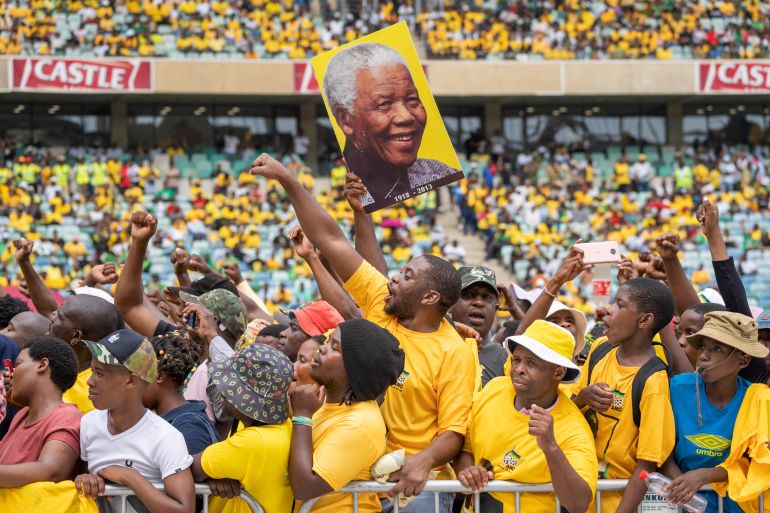
At least 31 new political parties have registered to contest the upcoming elections, the country’s Electoral Commission (IEC) said.
Emeritus professor at the University of the Witwatersrand, Susan Booysen, said “the greatest irony” of the South African elections was that the decline in the ANC’s support was not leading to a massive increase in support for the top opposition parties.
“This is one of the riddles of South African politics,” she said. “There is a lot of splintering happening. This explains a bit of it. At the same time, much of the discontent with the ANC still goes back to voting for the ANC because there are no sufficient alternative parties.
“Also, the ANC has delegitimised the opposition as a viable alternative.”
The ANC, as the main liberation movement that fought and helped end apartheid, has sought to downplay the role and relevance of the opposition in South Africa.
Booysen said voters cannot imagine the opposition becoming a viable government nationally, before turning to Italian Marxist philosopher Antonio Gramsci’s famous comment – made in the context of neoliberalism.
“The old is dying but the new is not ready to be born. It is a cliche but it speaks of the current reality in our political landscape,” she said.
Opposition coalition
Ndletyana said there was all indication that no single party would receive a majority and that a government would be formed through a coalition.
“The ANC will remain the largest party [after the elections] because its main rivals are not showing significant growth,” he added.
Ndletyana said he did not believe efforts to arrange a pre-election coalition led by the DA, called the Multi-Party Charter (MPC) had real prospects of success.
“I don’t think they have a real chance of becoming the government,” he said.
The MPC is an 11-member party formation seeking to remove the ANC from power nationally and to block an ANC coalition deal with the leftist EFF.
Besides the DA, the MPC includes the IFP, the centre-right ActionSA, a breakaway of the DA, and the conservative Freedom Front plus – as well as a number of micro-parties.
These parties accounted for about 25 percent of the vote in the 2019 election. Several opinion polls suggest that support for the MPC, at its best case, hovers at between 35 percent and 37 percent this election – not enough to form a majority to unseat the ANC.
However, William Gumede, an associate professor at the Wits School of Governance at the University of the Witwatersrand and chair of the MPC, disagreed, saying it has never been more possible for the opposition to form a majority and unseat the ANC.
“When we started the conversation about the Multi-Party Charter, we said the ANC’s majority would slip to below 50 percent. Now we are looking at the ANC slipping to 40 percent. The MPC has a real chance to fight,” he said.
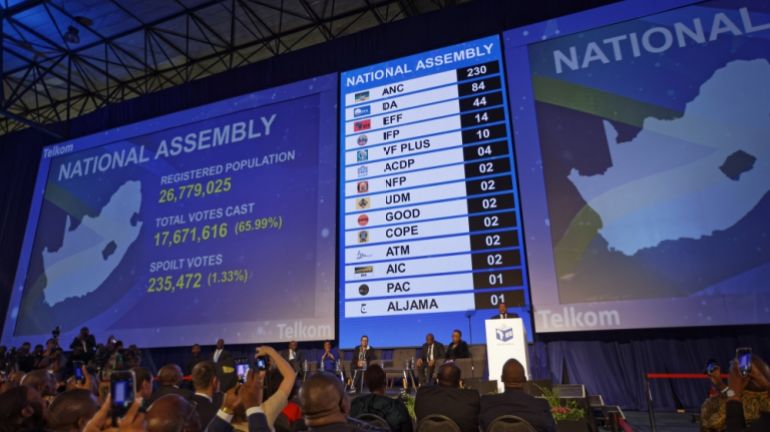
The block of opposition parties aimed at unseating the ANC have agreed-upon principles which include upholding the South African Constitution, the rule of law and equality before the law.
It also includes decentralising the power of government, creating a transparent government and zero tolerance towards corruption.
The MPC committed to efficient spending of public money by the government, an open market economy, as well as the promotion of nonracialism.
“The Multi-Party Charter has communicated its policies and showed South Africans how it could be an alternative government,” said Gumede, who has negotiated between party leaders to form the pre-election pact.
On a provincial level, the MPC has its eyes set on winning KwaZulu-Natal and Gauteng, two of the largest provinces where they expect the ANC’s support to plummet. In those provinces, analysts say the opposition are more likely to form a minority coalition.
Booysen said while there was hope for the MPC, it did not hold the prospects of becoming an alternative to the ANC government as projected.
“It’s an initiative whose time has not come yet. Its success is based on the possibility that it can beat the ANC [but] they have not gathered enough parties or support to be a formidable opposition,” she said.
“In concept, it is very good but in practice, it has not pulled together the necessary support.”
Despite predictions of the ANC’s decline, it has remained bullish about its prospects given the disorganisation of opposition parties.
“Polls are polls. We know, as the ANC, how well we are going to do, and our people, in their hearts, know how well the ANC is going to do,” President Cyril Ramaphosa said on the sidelines of the election campaign on Sunday.
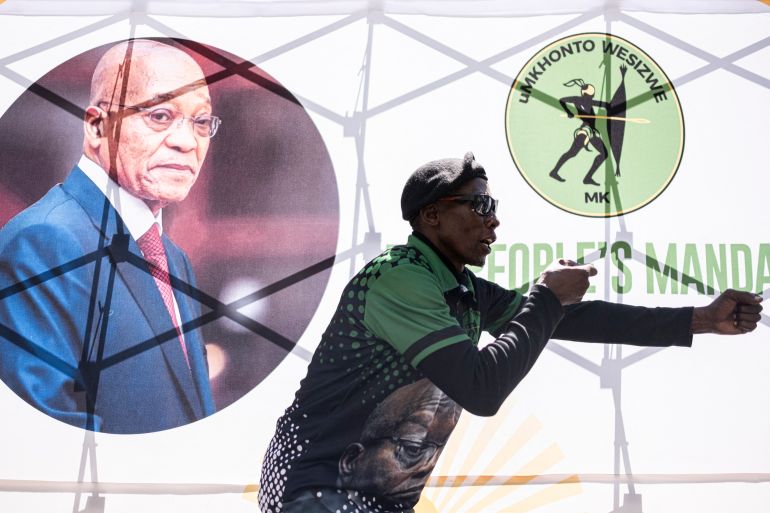
New threat
Among the new entrants to the political sphere is the uMkhonto we Sizwe (MK) party led by former South African president Jacob Zuma. The Ipsos poll predicted this party may garner up to 8.4 percent in support.
The ANC is losing support to Zuma’s new political party mainly in his home province of KwaZulu-Natal.
Zuma has said he would not vote for the ANC for the first time in 30 years because the party has “lost its way”.
The MK, which is proposing more radical socialist policies, has relied on the star power of the former head of state to attract supporters ahead of the elections.
“The emergence of the MK Party has affected both the ANC and the EFF,” Booysen noted, further adding that the full extent of the MK’s influence would be seen at the elections.
EFF leader Julius Malema, whose party is also losing support to the MK, tried to downplay recent opinion polls.
“Stand tall, leaders of the EFF, you can’t be intimidated by Ipsos. Ipsos didn’t say anything wrong, it just tells you where you need to work hard. Use that to motivate yourself,” he said to supporters on Sunday.
Both Booysen and Gumede agreed that while the polls are not a final indicator of election results, they give a strong indication of how parties will perform.
“There are still many undecided voters who will decide to vote for in the days before the election,” Gumede said.




